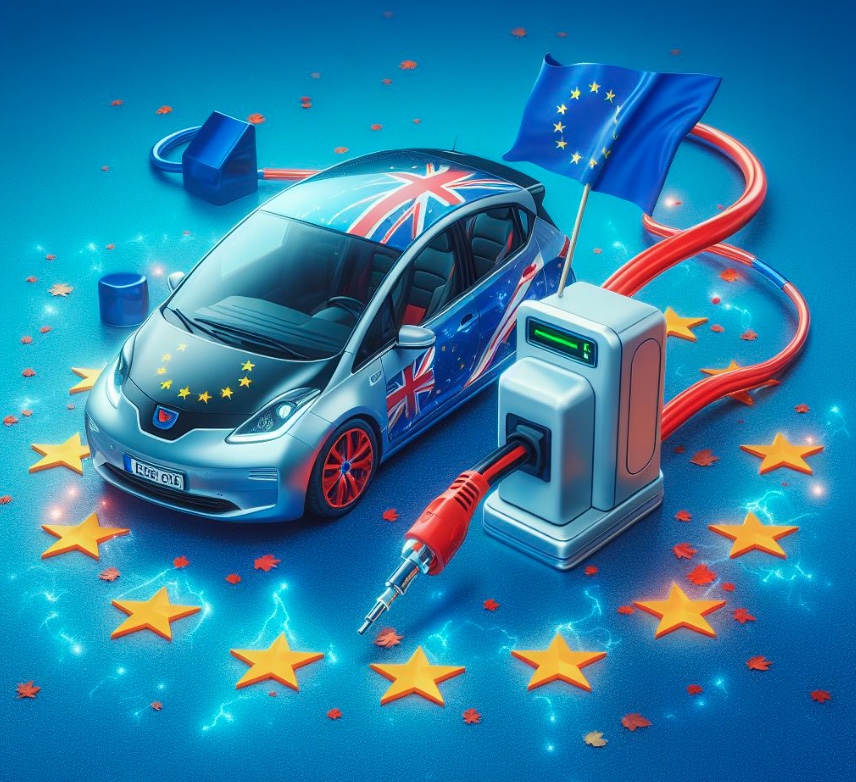European elections: At the highest levels of European institutions, there’s potential for a change in the 2035 target to phase out sales of cars with internal combustion engines. Despite the automotive industry already making significant strides toward transitioning to electric vehicles, this shift could signal a new direction. Following extensive negotiations, EU member states reached a historic agreement in 2022: starting from January 1, 2035, only cars without tailpipe CO2 emissions will be allowed for sale within the bloc.
As a result, in just over a decade, petrol and diesel cars will no longer be available in showrooms, with sales restricted to battery-electric or hydrogen-powered vehicles. The cancellation of the 2035 deadline has become a rallying point for Europe’s right-wing parties. While the European car industry remains a major employer and leader in traditional cars, it lags behind Chinese newcomers in developing affordable electric vehicles. The ECR parliamentary group, which includes political parties like Fratelli d’Italia and Vox of Spain, continues to resist the necessity of transitioning to electric cars.
Right turn
The European Parliament’s right-wing parties strongly believe in the continued commercial viability of internal combustion engines. They argue that these engines can thrive for years by embracing cutting-edge technologies and investing in innovative research for low-carbon alternatives. However, this stance faces opposition. The Identity and Democracy Group, another right-wing faction within the European Parliament, includes the National Regrouping (RN) party in France and the Alternative for Germany (AfD) party. They specifically target expensive electric vehicles, considering the impending ban on such vehicles as discriminatory and socially exclusionary.
Meanwhile, the outgoing majority party, the centre-right European People’s Party (EPP), grapples with internal divisions. The German Christian Democratic Union (CDU) and the Bavarian Christian-Social Union (CSU), both part of the EPP, advocate for repealing the 2035 deadline. They want to preserve the benefits of ‘cutting-edge German internal combustion engine technology.’ Interestingly, this pro-internal-combustion stance did not find its way into the EPP manifesto. Ursula von der Leyen, the outgoing head of the European Commission, negotiated the 2035 deadline as part of the EU’s ‘Green Deal.’ While it would be surprising for the commission to backtrack, Diane Strauss from the non-governmental organization Transport & Environment acknowledges the risks of implementing such a significant change.

Towards an electrified industry
The European automotive industry, which employs 12 million people, is steadily transitioning toward electric vehicles. The availability of all-electric models has increased, and their market share reached approximately 13% by the end of last year, although growth has slightly slowed. However, Renault CEO Luca de Meo, who leads the European automotive lobby group ACEA, recently preferred delaying the ban. He stated, ‘I hope the ban takes effect a bit later because I believe implementing it immediately could harm the entire European car industry and disrupt the value chain.’
Carlos Tavares, the head of Stellantis (Europe’s second-largest car manufacturer), closely monitors European and US elections. He predicts that the shift toward electric vehicles will accelerate if ‘dogmatic progressives’ win office but may slow down if ‘populists’ come into power. According to Transport & Environment’s Strauss, the success of the 2035 deadline hinges on several factors, including the widespread deployment of charging stations and price reductions facilitated by subsidized leasing programs. Strauss also warns that a parliament strongly opposed to e-mobility could hinder the necessary initiatives, citing subsidy reductions as an example.
Looking ahead to 2026
A review of the progress of electrification is already planned. While this won’t necessarily lead to another vote on the 2035 deadline, the review could reveal any lagging progress and bolster the position of those advocating for alternatives. For instance, German Transport Minister Volker Wissing has called for allowing synthetic fuels (also known as e-fuels). Although currently energy-intensive and expensive to produce, e-fuels are explored to reduce the aviation industry’s carbon footprint. Interestingly, car manufacturers like Porsche, Stellantis, and Renault have considered using e-fuels in existing engines. However, sceptics highlight challenges in achieving complete carbon neutrality with these fuels and note their lower efficiency compared to battery electric vehicles.



